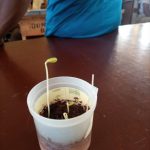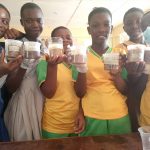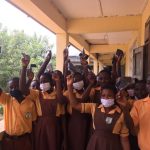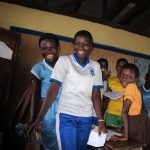Meet Dr. Connie Chow, Founder and Director of The Exploratory
Guess who is in the spotlight this week? Dr. Connie Chow, the founder and director of The Exploratory! Her simple lifestyle, meticulousness, and her undying quest to impact the lives of people, especially girls, are a few of the many attributes that define Dr. Chow. Connie, as she prefers to be called, is the kind of boss who cherishes teamwork and also gives her staff enough room to explore and unearth their potentials while on the job. To me, the Ghanaian name that best describes Dr. Chow is ‘Nhyira’ meaning ‘Blessing’ because, indeed The Exploratory has not only been a blessing to the expanding STEM network in Ghana, but has also been a blessing to our club participants who have now adopted a more positive perception about science and are poised to break the myth surrounding science, technology, engineering and mathematics! You can read more about her here and listen to a podcast interview here. (by Christian Sackey-Acquah)
*********************
Tell us a little about yourself, your previous engagement with the African Women Advocacy Project (AWAP) and your current organization, The Exploratory.
I grew up in Hong Kong and attended an all-girls’ school from primary one to the end of senior school. I love how science helps me see the world — as if through a magic lens that reveals beauty and intrigue. I have a doctoral degree from Harvard University, in molecular virology and had been a university professor at the undergraduate level. After a few years as a tenure-track professor, I decided to nurture the growth of a nonprofit organization, Science Club for Girls (SCFG) in the U.S. I founded The Exploratory about two years ago when I left SCFG. AWAP and its director, Dr. Iyabo Obasanjo took this project under its wing at the early stages, until we became our own NGO in Ghana. Currently, I’m also an associate professor in the Honors College at the University of Massachusetts Boston.
From your own estimation, how has the reception been so far in Ghana in your bid to promoting STEM and gender equity among basic school children?
The understanding of the need is there. The national science education director and his team, the various Ghana Education Service district directors as well as gender coordinators we have spoken to, women and many men in science in universities and industry, all agree that what we are implementing is important. Educators and practitioners in academia and industry all see that changing young children’s mindset from passive learners to engaged active participants of learning and creating is essential for Ghana’s development. Of course, our local funding partners are a material indicator of the reception!
Periodic teacher training programs form an essential part of your organization’s mission. So far how many teachers have you reached out to and what has the impact been?
Over 70, and the majority more than once. When we conducted our 3-day training in August 2016, the majority of teachers indicated in their survey that they not had any professional development, let alone training in science, in at least the previous 12 months.
Subsequent interviews indicate most have changed how they teach in the classroom : they are able to do practicals (hands-on experiments) and doing group work has become a routine. A few teachers have been transferred into upper grades, one even from primary school to junior high, because of her ability to teach science.
Other teachers in the schools have come to borrow materials provided by The Exploratory, so in fact, many more students in the school have benefited from our program indirectly. Some of these teachers, seeing the benefit they can derive professionally and for their students, have asked to become facilitators for us.
It is a great pleasure to have you run such a great organization in our country Ghana. What informed your choice of establishing this organization in Ghana and not any other African country?
Political stability, official language of instruction being English as well as willingness of local partners played a big role. When I first started the project almost 8 years ago there were very few STEM focused initiatives. We are very happy to see a growing number of individuals and groups contributing to this effort and to be part of the expanding Ghana STEM ecosystem. (See here and here).
Do you think Ghana has a future with STEM, and how do you think we can strengthen the foundation of STEM in Ghana?
Ghana doesn’t really have a choice. In order to move forward in development, the country must embrace not only science and engineering in practice, by promoting industries and innovation, but also in mindset – in how people and governments use evidence and critical thinking to make decisions and create policy.
How will you describe Ghana’s current position on the promotion of gender equity?
Ghana is an interesting place. On the one hand, you have a foundation of respect for women, and women in power in your traditional societies. You also have a large number of women CEOs in the private sector, leading large companies. The representation of women in high positions in government is also quite visible. That said, many girls and women are still limited by traditional gender roles, and in their selection of subjects to study, and careers to pursue. And then there’s the larger context of abuse against women – and certainly, recent remarks by your gender minister who put the blame on how women and girls dress instead of laying the responsibility on men and boys to behave does not help. All these must be tackled.
Away from your organization, what has your experience been so far with Ghana, its people and its cultural diversity?
I am in awe of your founder, Kwame Nkrumah – such a visionary leader. And I have met amazing minds and so many who are dedicated to making this country great.
I travelled some around Ghana when I first came. I love the Atlantic Ocean. I loved Kakum National Park and Wli Falls, the music that’s all around. I relish the fruits, and variety of street food and staples (ok, not so much banku and kenkey) – the fermented maize is a taste I have yet to acquire. I love the colors – in nature, in the streets, in high fashion and everyday. I have so much more to learn – I can’t wait to visit other regions, especially the north, which is so different in climate and culture, and learn more games and songs, traditional and contemporary.
Ghanaians are more than kind. Of course, there are a few exceptions, just like any other group. In general, I’ve felt taken care of and been safe. Every time I come, I learn something new about the various ethnic and tribal groups, and the relationships between them; about neighborhoods and history. I’ve also loved the extremely creative people, from video game developers to entrepreneurs to artists to bloggers, who are on the global cutting edge.
Where do you see your organization in the next five years?
That we will be in a majority of regions in Ghana, and in other countries as well. I would like to see a strong leadership team composed of Ghanaians (and other local leaders), and a corps of teacher-trainers who can inspire and model what good STEM teaching can look like.
Our goal, given the current program model and partnerships, is to have at least 25% of our current participants of the right age in university, and about 50% of those pursuing STEM subjects. All in university will adopt the growth and analytical mindset we’ve instilled. More importantly, we hope our teachers, students and staff, together with our network, really change the conversation to stress the importance of equitable, relevant, joyful and collaborative STEM education and pursuits, for the good of all.
